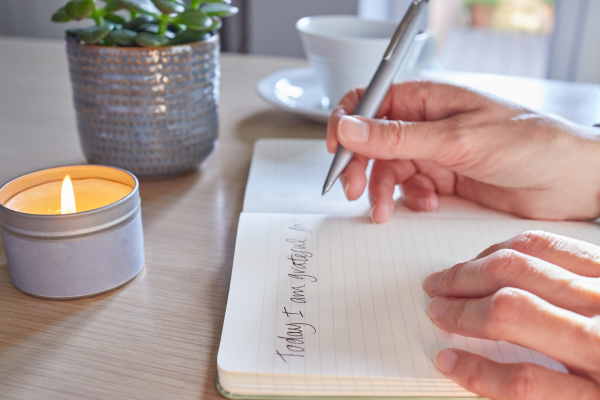Updated November 28, 2023.

Practice Gratitude
Gratitude is for...
It’s become a “buzz phrase” as of late, but why? It is included in conversations about improving sleep, mental health, emotions, physical health, and so much more. So, what’s the big deal? What is it about practicing gratitude that can make such a big difference?
1. Gratitude improves physical health.
2. Gratitude improves psychological health.
3. Gratitude enhances empathy and reduces aggression.
4. Gratitude opens the door to more relationships.
5. Grateful people sleep better.
6. Gratitude improves self-esteem.
7. Gratitude increases mental strength.
Research shows multiple areas of our lives can see improvement through practicing gratitude, thus making the transition to a new year the perfect opportunity to reflect and incorporate more of it throughout our days.
How will you practice gratitude as 2023 comes to an end and a new year begins?
What are 3-5 big things that happened this year, for which you are appreciative?
Did you go through any challenges this year? While it can be difficult, can you find a silver lining or something in the challenge for which to be grateful?
Ways to HAVE more gratitude!
Read through the ideas below, picking out 2-3 that could correspond with the habits and daily routine you already have in place.
Morning Coffee Gratitude– When you’re having your first cup of coffee, or glass of water, or even while you’re brushing your teeth, take a moment to sit back and think of the things you’re grateful for in life. A few simple, yet powerful, things to experience and appreciate:
- The breath in your lungs…
- The warmth of the coffee mug you’re holding…
- The toothbrush you have to clean your teeth…
- The quiet just before the hustle and bustle of the day begins…
Grace Before Meals– Take a quick moment to pause and be mindful of what it took for your meal to arrive on your plate and what that food can do for you and those with whom you’re sharing the meal. Giving thanks spiritually or secularly is still practicing gratitude.
Put Things in Perspective– Things won’t always go your way. And while gratitude is an easy emotion to conjure up when they do, it’s when things go awry that it’s even more important to practice gratitude. It helps to release some of the negative emotions, as well as help you put things into a different perspective which may serve you not just now, but also in the future.
- What can I learn from this?
- How can I benefit from this?
- What “silver lining” can I find in this situation?
Gratitude Journal– Researchers out of Indiana University found that the brain activity from those who write as a method to practice gratitude versus those who don’t (as well as those who do not actively practice gratitude) is healthier and more “lit up.” Greater neural sensitivity in the medial prefrontal cortex is associated with a greater capacity to learn new things and make healthier, well-thought-out decisions. While research shows that writing a short list of 3-5 things you’re grateful for daily can have a profound impact on your life, the verdict is out on when to write your list. Therefore, the key takeaway here is to simply write.
- Create a “gratitude time” for you, based on your habits, your lifestyle, etc, and be consistent with it.
- Use a written journal or even an app on your phone or tablet. (Note: Written does seem to be slightly more beneficial in the long run when compared to a typed version, however.)
These are just a few ideas to get you started. Visit Daring to Live Fully for more ideas, research, and support.
